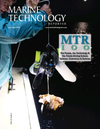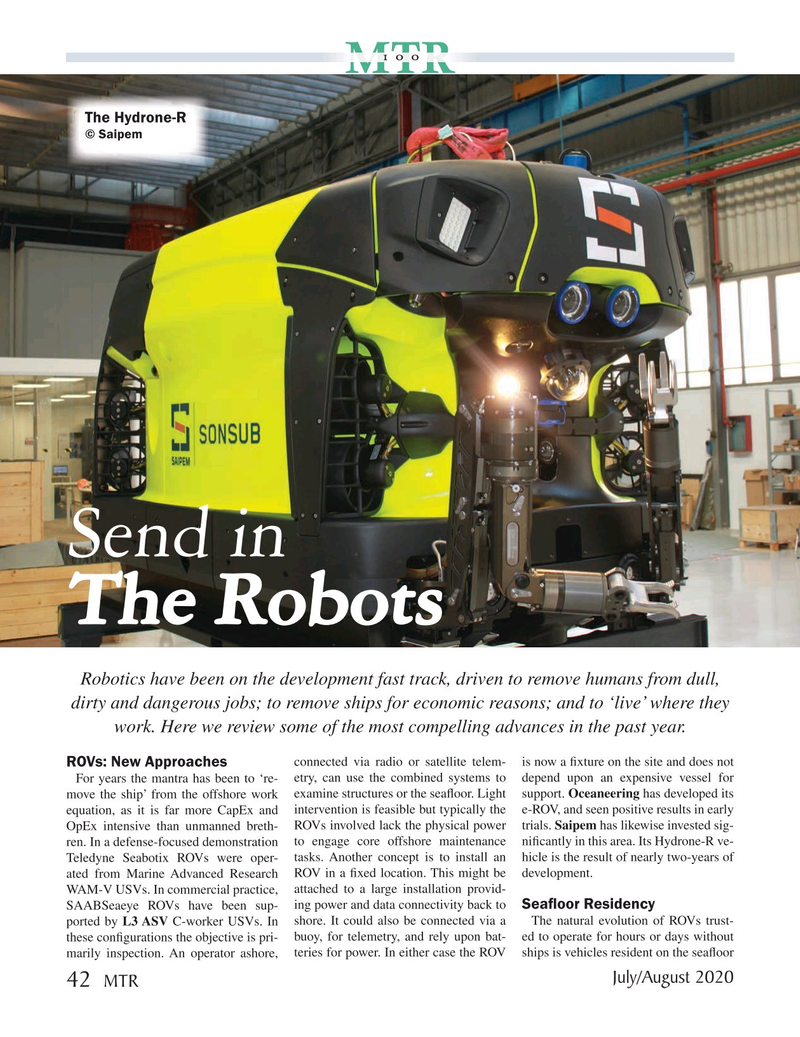
Page 42: of Marine Technology Magazine (July 2020)
Read this page in Pdf, Flash or Html5 edition of July 2020 Marine Technology Magazine
100
MTRMTR
The Hydrone-R © Saipem
Send in
The Robots
Robotics have been on the development fast track, driven to remove humans from dull, dirty and dangerous jobs; to remove ships for economic reasons; and to ‘live’ where they work. Here we review some of the most compelling advances in the past year.
connected via radio or satellite telem- is now a ? xture on the site and does not
ROVs: New Approaches
For years the mantra has been to ‘re- etry, can use the combined systems to depend upon an expensive vessel for move the ship’ from the offshore work examine structures or the sea? oor. Light support. Oceaneering has developed its equation, as it is far more CapEx and intervention is feasible but typically the e-ROV, and seen positive results in early
OpEx intensive than unmanned breth- ROVs involved lack the physical power trials. Saipem has likewise invested sig- ren. In a defense-focused demonstration to engage core offshore maintenance ni? cantly in this area. Its Hydrone-R ve-
Teledyne Seabotix ROVs were oper- tasks. Another concept is to install an hicle is the result of nearly two-years of ated from Marine Advanced Research ROV in a ? xed location. This might be development.
WAM-V USVs. In commercial practice, attached to a large installation provid-
Sea? oor Residency
SAABSeaeye ROVs have been sup- ing power and data connectivity back to ported by L3 ASV C-worker USVs. In shore. It could also be connected via a The natural evolution of ROVs trust- these con? gurations the objective is pri- buoy, for telemetry, and rely upon bat- ed to operate for hours or days without marily inspection. An operator ashore, teries for power. In either case the ROV ships is vehicles resident on the sea? oor
July/August 2020 42
MTR
MTR #6 (34-49).indd 42 8/12/2020 5:26:33 PM

 41
41

 43
43
